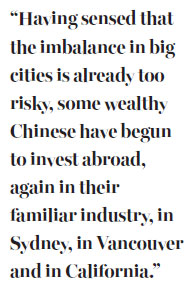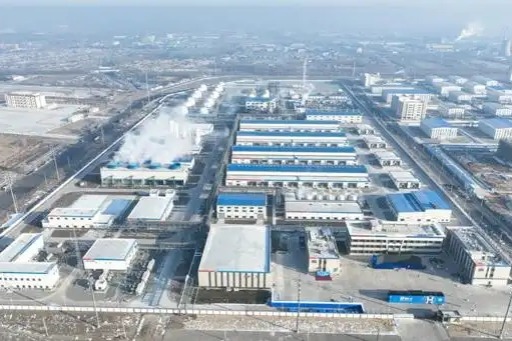We need to tap wealth of ideas

China must find more ways to manage its rich people and their potential creativity
Once again, as it has many times in the past, the Chinese government will find it a challenge to manage rich people.
The recent surge in housing prices in so-called first-tier cities - Beijing, Shanghai and Guangzhou - and a few provincial capitals is not so much a business issue as a sociological or perhaps political one.
The past 40 years of market-oriented reforms have changed the landscape of China and created, out of an aggressively egalitarian society, not a small number of moneyed people.
They may account for just a small percentage of the population, but they do make up a strong force in absolute number and in collective capital.

But how to prevent those people, and their money, from affecting social stability? And how to bring their interests in line with the interests of society and government social programs?
None of the ancient dynasties (all had egalitarian beginnings, more or less) found the answer to these questions. And, in their later stages, none of them seemed to be able to build a coalition with rich people who had benefited from earlier policies to find solutions to lingering and potentially harmful societal problems.
Chinese people repeatedly read from their history that a highly centralized administration can successfully manage a fairly equal society (most being small-plot farmers after a disastrous period, such as war) by rebuilding order and establishing a largely peaceful way of life.
But it never takes long for a new class to emerge. As the nouveau rich start to reinvest their wealth in limited resources (primarily land) on which other people depended, order begins to fall apart if the government continues to manage society in the old way, which is what as the dynastic rulers did, except for one failed reform attempt by the Song Dynasty (960-1279).
Now, look at today's rich Chinese. Through the 1990s and 2000s, they were participants and beneficiaries in the housing reform. That process saw China branded the world's largest construction site, and hundreds of cities and towns got a face-lift. But when they come back to invest in the housing market, they continuously push up prices to unbearable levels for the rest of society, including the young professionals, who are the nation's future.

Things begin to get unhealthy from here, as more business is focused on real estate development and trade in land-based assets, so the road to future economic development appears to narrow.
Having sensed that the imbalance in big cities is already too risky, some wealthy Chinese have begun to invest abroad, again in their familiar industry, in Sydney, in Vancouver and in California.
Recently, in the Hong Kong financial markets, there has been a large influx of so-called northern water (funds from the mainland), as a result of stock connects between the Shanghai, Shenzhen and Hong Kong stock exchanges.
In fact, the mainland still has lots of public facilities and services that need finance and cannot be carried out single-handedly by the government, the most obvious ones being urban utilities, farm technologies and logistics, medical and retirement care, and education.
In a bold move, the government may work with private partners to develop large satellite towns near Beijing, which provide long-term but stable returns.
However, institutional barriers - most importantly, areas with a state monopoly - are not helping the authorities to channel private investment into more areas, which would lower the government debt level.
From this analysis, one can see that the so-called China debt, which foreign investors talk about fearfully, and the urban housing problem, which many Chinese young people resent, actually have the same root cause - the limited ways such a large nation utilizes the treasure of its private capital.
In other words, China needs to find more ways to manage its rich people and their potential creativity.
The author is an editor-at-large of China Daily. Contact the writer at edzhang@chinadaily.com.cn
(China Daily Africa Weekly 09/30/2016 page13)
Today's Top News
- China warns about Japan's intended military buildup
- China urges EU to halt anti-subsidy probes
- Experts: Lai not freedom fighter, but a pawn of the West
- Hainan evolves as gateway to global markets
- Opening up a new bridge between China and world
- Tour gives China-Arab strategic trust a boost






























